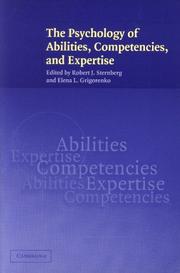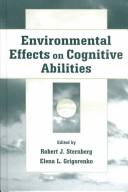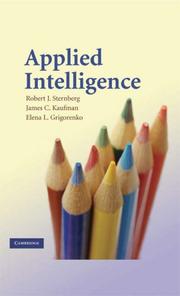| Listing 1 - 8 of 8 |
Sort by
|
Book
ISBN: 1461409047 9786613696496 1461409055 1280786108 Year: 2012 Publisher: New York : Springer,
Abstract | Keywords | Export | Availability | Bookmark
 Loading...
Loading...Choose an application
- Reference Manager
- EndNote
- RefWorks (Direct export to RefWorks)
Juvenile justice centers have a long tradition as an unfortunate stop for young offenders who need mental health care. Reports estimate that as many as 70% of the youth in detention centers meet criteria for mental health disorders. As juvenile justice systems once again turn their focus from confinement to rehabilitation, mental health providers have major opportunities to inform and improve both practice and policy. The Handbook of Juvenile Forensic Psychology and Psychiatry explores these opportunities by emphasizing a developmental perspective, multifaceted assessment, and evidence-based practice in working with juvenile offenders. This comprehensive volume provides insights at virtually every intersection of mental health practice and juvenile justice, covering areas as wide-ranging as special populations, sentencing issues, educational and pharmacological interventions, family involvement, ethical issues, staff training concerns, and emerging challenges. Together, its chapters contain guidelines not only for changing the culture of detention but also preventing detention facilities from being the venue of choice in placing troubled youth. Key issues addressed in the Handbook include: Developmental risks for delinquency. Race and sex disparities in juvenile justice processing. Establishing standards of practice in juvenile forensic mental health assessment. Serving dually diagnosed youth in the juvenile justice system. PTSD among court-involved youth. Female juvenile offenders. Juvenile sex offenders. The Handbook of Juvenile Forensic Psychology and Psychiatry is an essential reference for researchers, professors, allied clinicians and professionals, and policy makers across multiple fields, including child and school psychology, child and adolescent psychiatry, developmental psychology, criminology, juvenile justice, forensic psychology, neuropsychology, social work, and education.
Child psychology -- Handbooks, manuals, etc. --- Forensic psychology -- Handbooks, manuals, etc. --- Juvenile delinquency -- Psychological aspects -- Handbooks, manuals, etc. --- Juvenile delinquents -- Psychology -- Handbooks, manuals, etc. --- Psychiatry --- Social Problems --- Jurisprudence --- Forensic Medicine --- Medicine --- Forensic Sciences --- Social Control, Formal --- Sociology --- Behavioral Sciences --- Social Sciences --- Health Occupations --- Behavioral Disciplines and Activities --- Health Care Economics and Organizations --- Criminology --- Health Care --- Disciplines and Occupations --- Anthropology, Education, Sociology and Social Phenomena --- Psychiatry and Psychology --- Forensic Psychiatry --- Juvenile Delinquency --- Public Health --- Health & Biological Sciences --- Psychology --- Legal & Forensic Medicine --- Forensic psychology --- Forensic psychiatry --- Juridical psychology --- Juristic psychology --- Legal psychology --- Psychology, Forensic --- Law and legislation --- Psychology. --- Medicine. --- Psychiatry. --- Social work. --- Child psychology. --- School psychology. --- Child and School Psychology. --- Criminology and Criminal Justice, general. --- Law and Psychology. --- Social Work. --- Medicine/Public Health, general. --- Medical jurisprudence --- Mentally ill offenders --- Forensic sciences --- Psychology, Applied --- Developmental psychology. --- Criminology. --- Law --- Psychological aspects. --- Clinical sciences --- Medical profession --- Human biology --- Life sciences --- Medical sciences --- Pathology --- Physicians --- Benevolent institutions --- Philanthropy --- Relief stations (for the poor) --- Social service agencies --- Social welfare --- Social work --- Human services --- Crime --- Social sciences --- Criminals --- Medicine and psychology --- Mental health --- Psychology, Pathological --- Development (Psychology) --- Developmental psychobiology --- Life cycle, Human --- Psychology, Juridical --- Psychology, Juristic --- Psychology, Legal --- Therapeutic jurisprudence --- Study and teaching --- Health Workforce --- Behavioral sciences --- Mental philosophy --- Mind --- Science, Mental --- Philosophy --- Soul --- Psychology, School --- Behavior, Child --- Child behavior --- Child study --- Children --- Pediatric psychology --- Child development --- Developmental psychology
Book
ISBN: 0826111084 9780826111081 9781306083973 1306083974 9780826111074 0826111076 Year: 2013 Publisher: New York
Abstract | Keywords | Export | Availability | Bookmark
 Loading...
Loading...Choose an application
- Reference Manager
- EndNote
- RefWorks (Direct export to RefWorks)
This handbook helps readers to both understand and craft policies to aid the successful acculturation of immigrants in the US. It is an excellent road map for researchers in immigration and education, as well as educational and developmental psychologists, sociologists, economists, and public policy makers. An immigrant from Russia, Dr. Grigorenko weaves her first-hand experiences and strategies into this unique text. It encompasses all available research on immigration and acculturation, from new information on bilingual education to studies of low-skill versus high-skill workers. Key Topics:
Acculturation --- Children of immigrants --- Cultural pluralism --- Education, Bilingual --- Immigrants --- Multicultural education --- Emigrants --- Foreign-born population --- Foreign population --- Foreigners --- Migrants --- Persons --- Aliens --- First generation children --- Immigrants' children --- Second generation children --- Education --- Social aspects --- Bilingualism --- Multilingual education

ISBN: 0521007763 1280433892 0511615809 0511181078 0511205295 0511308132 0511072627 1107132118 0511064160 9780511064166 9780511181078 9780511072628 9780511615801 9781280433894 9786610433896 6610433895 0521809886 9780521809887 9780521007764 9781107132115 9780511205293 9780511308130 Year: 2003 Publisher: Cambridge, UK ; New York : Cambridge University Press,
Abstract | Keywords | Export | Availability | Bookmark
 Loading...
Loading...Choose an application
- Reference Manager
- EndNote
- RefWorks (Direct export to RefWorks)
The goal of this book is to characterize the nature of abilities, competencies, and expertise, and to understand the relations among them. The book therefore seeks to integrate into a coherent discipline what formerly have been, to a large extent, three separate disciplines. Such integration makes both theoretical and practical sense, because abilities represent potentials to achieve competencies, and ultimately, expertise. Authors of each chapter (a) present their views on the nature of abilities, competencies, and expertise; (b) present their views on the interrelationships among these three constructs; (c) state their views on how these three constructs can be assessed and developed; (d) present empirical data supporting their position; (e) compare and contrast their position to alternative positions, showing why they believe their position to be preferred; and (f) speculate on the implications of their viewpoint for science, education, and society.
Ability. --- Expertise. --- Performance -- Psychological aspects. --- Ability --- Performance --- Expertise --- Social Sciences --- Psychology --- Psychological aspects --- Psychological aspects. --- Specialization --- Abilities --- Aptitude --- Proficiency --- Skill --- Skills --- Talent --- Talents --- Knowledge, Theory of --- Health Sciences --- Psychiatry & Psychology

ISBN: 0805836756 141061316X 9786612379161 1135655154 128237916X 0585428204 9780585428208 9781410613165 9780805836752 9780415652445 0415652448 6612379162 9781135655150 9781282379169 9781135655105 9781135655143 1135655146 Year: 2002 Publisher: Mahwah, N.J. L. Erlbaum Associates
Abstract | Keywords | Export | Availability | Bookmark
 Loading...
Loading...Choose an application
- Reference Manager
- EndNote
- RefWorks (Direct export to RefWorks)
This edited volume presents a balanced approach to the ongoing debate of just how general the "general factor" of intelligence is. To accomplish this goal, the editors chose a number of distinct approaches to the study of intelligence--psychometric, genetic-epistemological, cognitive, biological, behavior-genetic, sociocultural, systems--and asked distinguished scholars to write from the standpoint of these approaches. Each approach comprises two chapters, one by a scholar leaning toward a view arguing for the greater generality of g, and the other by a scholar leaning toward a view arguing for the lesser generality of g. The scholars are not simply "for" or "against" these outlooks, rather they provide a more textured view of the general factor, attempting to explain it in psychological terms that are easily understandable. Intended for psychologists in all areas, including clinical, consulting, educational, cognitive, school, developmental, and industrial-organizational, this book will also be of interest to educators, sociologists, anthropologists, and those interested in the nature of intelligence.
General factor (Psychology) --- Intellect --- #PBIB:2003.1 --- #PBIB:2004.4 --- #PBIB:gift 2004 --- Human intelligence --- Intelligence --- Mind --- Ability --- Psychology --- Thought and thinking --- Factor, General (Psychology) --- G factor (Psychology) --- General ability (Psychology) --- General intelligence (Psychology) --- Intellect.

ISBN: 1410612317 9781410612311 9780805831832 0805831835 9781135671136 9781135671174 9781135671181 9780415647526 1135671176 Year: 2001 Publisher: Mahwah, N.J. L. Erlbaum Associates
Abstract | Keywords | Export | Availability | Bookmark
 Loading...
Loading...Choose an application
- Reference Manager
- EndNote
- RefWorks (Direct export to RefWorks)
It sometimes seems that it is difficult to pick up a current newspaper or a magazine without it containing a story about some behavioral characteristic for which it has been found that a gene is responsible. Even aspects of behavior that one would feel certain are environmentally controlled are now being attributed in part to the effects of the genes. But genes never act alone: Their effects are always filtered through the environment. The goal of this volume is to discuss how the environment influences the development and the maintenance of cognitive abilities. It is a successor to
Intellect. --- Nature and nurture. --- Environmental psychology. --- Cognitive ergonomics --- Ecological psychology --- Ecopsychology --- Ecotherapy --- Environmental quality --- Environmental social sciences --- Human factors science --- Psychoeology --- Psychology --- Psychotherapy --- Ecological Systems Theory --- Environment --- Genetics and environment --- Heredity and environment --- Nature --- Nature versus nurture --- Nurture and nature --- Genetics --- Heredity --- Human beings --- Human intelligence --- Intelligence --- Mind --- Ability --- Thought and thinking --- Psychological aspects --- Nurture --- Effect of environment on --- Environment and genetics --- Environment and heredity
Book
ISBN: 9780521740098 9780511778049 9780521518543 9780511860638 0511860633 9780511858024 0511858027 051177804X 9780511858895 0511858892 0521518547 0521740096 0511861990 1107216087 128294195X 9786612941955 0511859767 0511857152 9780511861994 9781107216082 6612941952 9780511859762 9780511857157 Year: 2010 Publisher: New York : Cambridge University Press,
Abstract | Keywords | Export | Availability | Bookmark
 Loading...
Loading...Choose an application
- Reference Manager
- EndNote
- RefWorks (Direct export to RefWorks)
This book is a scholarly overview of the modern concepts, definitions, and theories of intellectual giftedness, and of past and current developments in the field of gifted education. The authors consider, in some detail, the roles of intelligence, creativity, and wisdom in giftedness and the interaction between culture and giftedness, as well as how giftedness can be understood in terms of a construct of developing expertise. The authors also review and discuss a set of key studies that address the issues of identification and education of children with intellectual gifts. This volume may be used as a summary overview of the field for educators, psychologists, social workers, and other professionals who serve intellectually gifted children and their families.
Gifted children --- Gifted children. --- Exceptional children. --- Atypical children --- Children --- Bright children --- Child prodigies --- Children, Gifted --- Highly capable children (Gifted children) --- Mentally advanced children --- Prodigies, Child --- Superior children --- Talented children --- Exceptional children --- Gifted persons --- Health Sciences --- Psychiatry & Psychology

ISBN: 9780521884280 9780521711210 9780511611445 0511611447 9780511394751 0511394756 9780511393310 0511393318 0511394101 9780511394102 0521884284 0521711215 1107186188 1281370495 9786611370497 0511392001 0511390793 Year: 2008 Publisher: New York : Cambridge University Press,
Abstract | Keywords | Export | Availability | Bookmark
 Loading...
Loading...Choose an application
- Reference Manager
- EndNote
- RefWorks (Direct export to RefWorks)
Typical texts develop students' knowledge while only minimally developing the general skills they will need for success in school and in life. The goal of our text is to assist students in acquiring the most important skills for facing the diverse challenges life presents. The book contains an overview of theories of intelligence, but itself is based in large part on a theory according to which individuals need creative skills to generate new ideas and a vision for the future, analytical skills to make sure that the vision is a good one, and practical skills to execute the ideas and to persuade other people of their value. The book considers key skills in problem solving, logical reasoning, analysis of arguments, knowledge acquisition, creative and practical thinking, automatizing information processing, and avoiding life traps that derail even the most intelligent among us.
Intellect --- Intellect. --- Learning, Psychology of. --- Learning --- Psychology of learning --- Educational psychology --- Comprehension --- Learning ability --- Human intelligence --- Intelligence --- Mind --- Ability --- Psychology --- Thought and thinking --- Psychological aspects --- Health Sciences --- Psychiatry & Psychology
Book
ISBN: 145227293X 1483350606 1452209901 1441652442 9781452272931 9781483350608 9781452209906 9781441652447 Year: 2009 Publisher: Thousand Oaks, Calif. : London : Corwin Press ; SAGE,
Abstract | Keywords | Export | Availability | Bookmark
 Loading...
Loading...Choose an application
- Reference Manager
- EndNote
- RefWorks (Direct export to RefWorks)
Based on extensive research, this teaching resource provides instructional and assessment guidelines for strengthening students' higher-order thinking and reasoning skills.
Teaching. --- Learning, Psychology of. --- Thought and thinking --- Educational tests and measurements. --- Study and teaching.
| Listing 1 - 8 of 8 |
Sort by
|

 Search
Search Feedback
Feedback About UniCat
About UniCat  Help
Help News
News